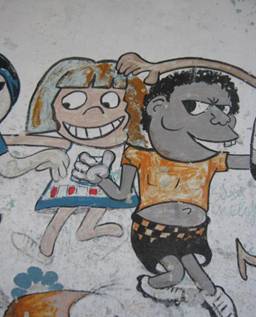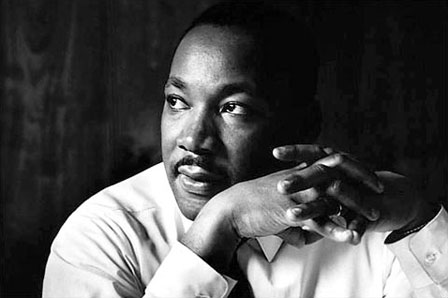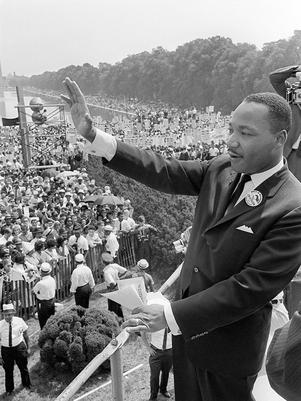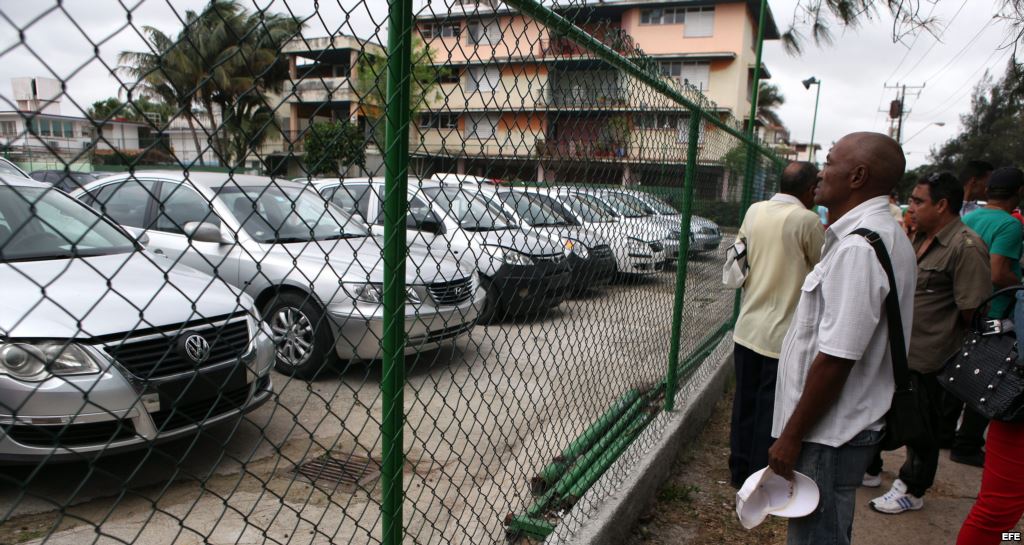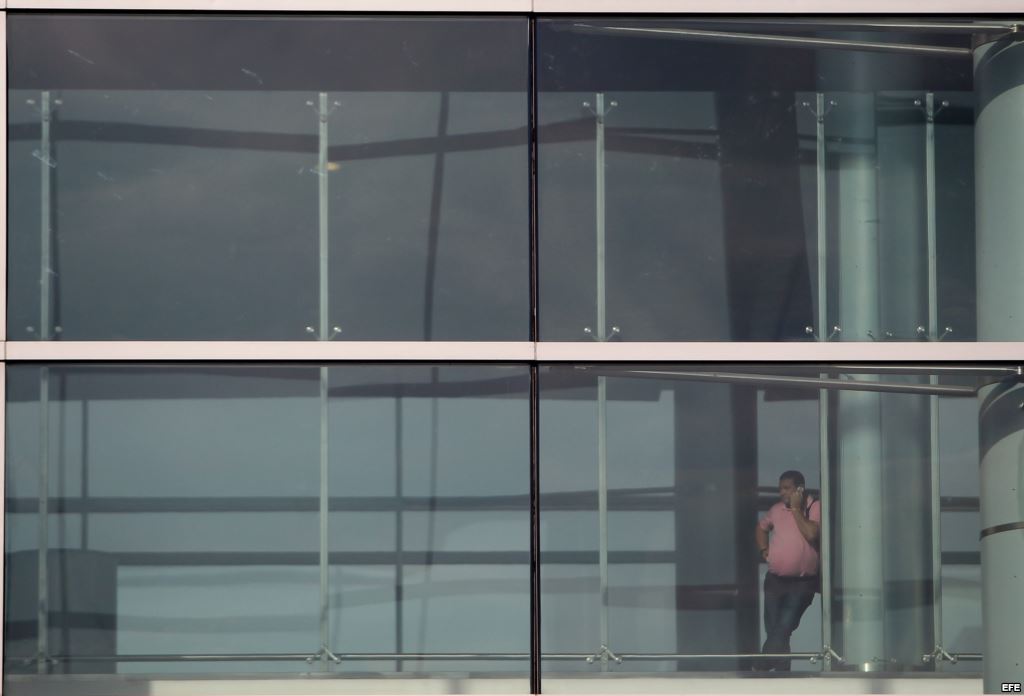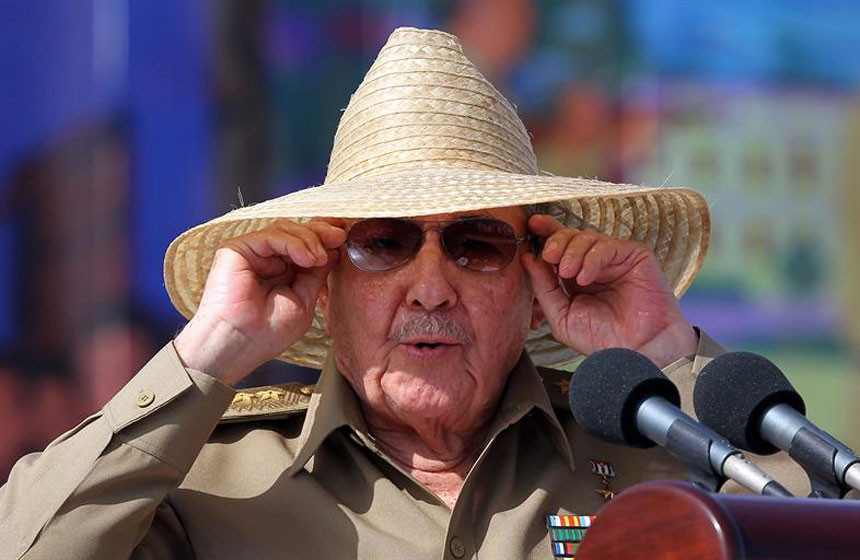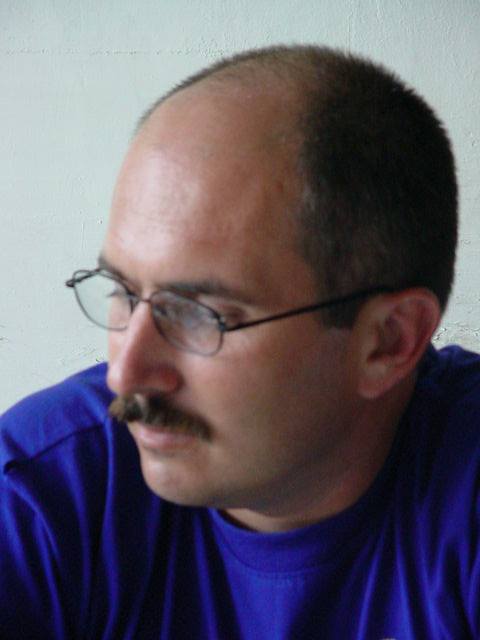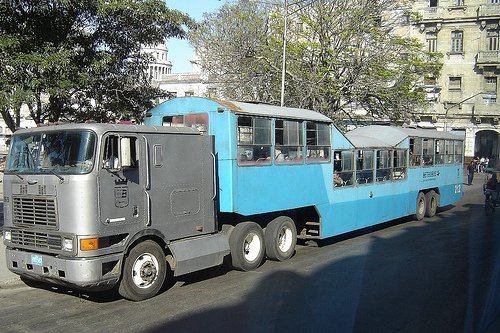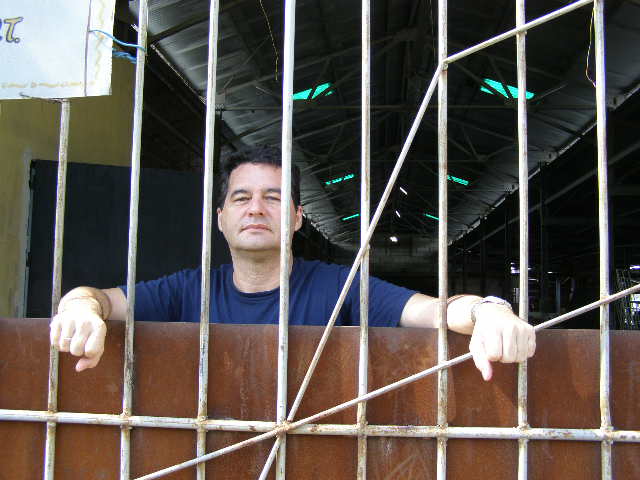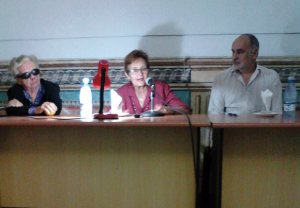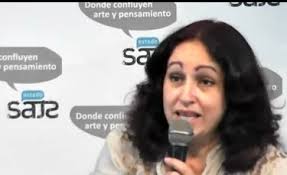I believe it’s a positive measure in the sense that it opens up for us the possibility of traveling when we’ve been invited. We have been able to have direct contact with institutions, with other governments and with free societies in the free world. It has strengthened our voices, people have met us personally.
But one can’t overestimate these things, because I don’t think this has substantially changed the Cuban political scene. Yes, we have been able to get solidarity, to find support, there have been groups that have now found sectors aligned to their respective activities, to the spheres where they operate as activists and they are receiving more effective support.
To me, this seems very good. But on the other hand I don’t see that these trips have significantly changed the Cuban political scene. It also tends to focus attention, to give to large a role to what the government does. The measures the government takes, which could mean some real opening on the road to democracy.
I think it’s time for civil society and all of us to understand that what we do doesn’t completely depend on what the government does, because the government is on the defensive: why give them that role?
To the extent that we can’t understand our own political reality, our own position toward the interior of Cuba and occupy a place in the political game of the country… I don’t think that because there is travel it’s going to substantially change the political situation in Cuba; we can’t change outside of Cuba, we change the interior of Cuba.
The significance that the various anti-Castro political leaders and other prominent dissidents have been able to go abroad is dichotomous, because on the one hand we understand that it’s a cynical political maneuver to cleanup the image of the regime and manipulating international public opinions, to stop the pressure for changes toward a State of Law.
On the other hand, it’s a unique opportunity to enjoy exchanges with interlocutors abroad and with allies in the Cuban exile. To invite Cubans on the Island to international forums, where they can talk, denounce, and then return to the bowels of the totalitarian beast as a symbol of courage and resistance for the people of Cuba.
Dagoberto Valdes (Director of the magazine “Coexistence” www.convivenciacuba.es; Catholic layman and intellectual)
 In my opinion, it’s the reform that has and will have the most impact on the situation in Cuba. I have to point out that it is unfair there are still Cubans who can’t enjoy this human right for being on parole, I’m referring to those of the 73 of the 2003 Black Spring who are still in Cuba.
In my opinion, it’s the reform that has and will have the most impact on the situation in Cuba. I have to point out that it is unfair there are still Cubans who can’t enjoy this human right for being on parole, I’m referring to those of the 73 of the 2003 Black Spring who are still in Cuba.
It’s been good for those Cubans who have the economic resources to travel or who have invitations to travel with the expenses paid. For those who travel it’s good because they have direct access to a vision of the world that can’t get through the official media inside Cuba.
It’s also very good for their interlocutors abroad who can get to know face to face the members of civil society, be they opponents, dissidents, bloggers, independent journalists, small businesspeople, and who can hear, without intermediaries, the opinions, criteria and proposed solutions of them in relation to the serious problems Cuba experiences.
It’s good for their families and friends and contributes to strengthening the cultural, family and religious exchange of the Cuban nation, which is unique in being dispersed all over the world. I hope that this inalienable right isn’t considered the property of any government, but an unrestricted freedom of every citizen for the mere fact of being a person.
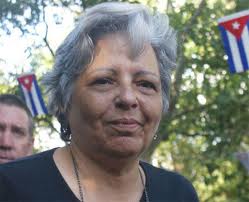 Marta Beatriz Roque (economist, journalist, former prisoner of the Cause of 75, can not leave Cuba because of the limitation imposed by being on parole).
Marta Beatriz Roque (economist, journalist, former prisoner of the Cause of 75, can not leave Cuba because of the limitation imposed by being on parole).
The political scene here is very complicated, because it is always divided. There is a political scenario toward the exterior and another within. The government has tried with all their measures to change the political image of Cuba abroad, and that’s why they’ve allowed people to leave the country, but they don’t want to saw that people can benefit from this reform because, in the first place, if someone wants to go on vacation in Jamaica, for example, with what money can they do that?
It will be the child of a leader, or someone whose trip is paid for from Jamaica because clearly people don’t have the necessary capital to pay the feels for all the paperwork. It’s one thing to say that in Cuba people can travel, or they can buy houses or cars, or they can work for themselves, but what are the restrictions on all this?
There are the economic restrictions in the case of self-employed workers, and they don’t allowed professionals to be self-employed at all. But abroad, the political scenario has totally changed, because now they have the chance to talk with the dissidents who have traveled abroad.
This indicates that there possibilities of freedoms toward the exterior, but we know that inside Cuba, these freedoms don’t exist. I think that if the particular case of those in my situation, according to Article 23 in the migratory law, those who have pending sanction, can’t travel. They can ask permission of the court that tried and sentenced them. But you just have to remember that the courts here are subordinate to what the government decides, and the government decides through the political police.
Cuba and the United States wouldn’t have to talk about new immigration conventions, simply because the American border guards won’t have to worry about someone coming by sea and people are constantly going by sea. I want to say that the freedom to travel hasn’t been a solution for those who want to leave Cuba.
Elsa Morejon (blogger and freelance journalist, wife of opposition leader Dr. Oscar Elias Biscet)
 The reform is still discriminatory because there are a lot of Cubans who can’t leave or enter Cuba. I have been able to travel in the past and since these changes and the pressure at the airport when you leave Cuba and later return, it’s incredible.
The reform is still discriminatory because there are a lot of Cubans who can’t leave or enter Cuba. I have been able to travel in the past and since these changes and the pressure at the airport when you leave Cuba and later return, it’s incredible.
There is no free and democratic country where you are watched by the police when you leave and enter your country. Plus, the reform makes Cubans wait 2 years after leaving the country (as emigrants) before they can return to their own country and this is a violation of the Universal Declaration of Human Rights, because in all the countries of the world people leave and return to their countries when they see fit.
It’s discriminatory because for one group it’s “yes,” and for another group, “no.” In Cuba, most people can’t afford a ticket to leave. When they get that money what they do is stay abroad. Others go to work in other countries,; but they don’t have the money to travel and return. It’s very humilliating that we have to depend onsomeone elsoe, on a friend who gives us the money to trael because we can’t earn enough money from our own work. That is, they are making modifications to the laws in Cuba, but Cubans don’t have access to them because our economic conditions are so prcarious.
The opposition in Cuba is peaceful. Though it the people have come to know many things that were unknown because there is no press freedom. And thanks to this strong dissidence that has been here going back years and persisting until today. the government had to make these modifications.
Wilfredo Vallín (Attorney; President of the independent Cuban Law Association)
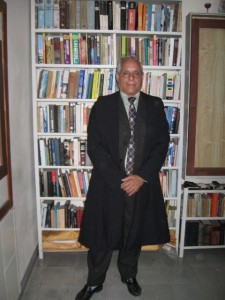 There was an external view of the Cuban opposition as an opposition with a low cultural level, people with very little or no preparation, and this has been an opportunity to demystify it. It has been important to give the real picture of the internal situation in Cuba. On the other hand, this has allowed contacts with people who, in one way or another, are interesting and important for is. I managed to meet in Spain with the head of the Spanish Notaries, and had the chance to talk with him for several hours.
There was an external view of the Cuban opposition as an opposition with a low cultural level, people with very little or no preparation, and this has been an opportunity to demystify it. It has been important to give the real picture of the internal situation in Cuba. On the other hand, this has allowed contacts with people who, in one way or another, are interesting and important for is. I managed to meet in Spain with the head of the Spanish Notaries, and had the chance to talk with him for several hours.
In Sweden I talked with the president of the Bar Association. In Costa Rica I got to meet and talk Mr. Oscar Arias, twice president of Costa Rica and Nobel Peace Prize winner. And so, from this point of view, establishing contacts, links, collaborations, courses, for us it is very important. It is also very comforting that the vast majority of Cubans who have now let, have returned to Cuba. This gives a dimension to the maturity the internal opposition has acquired.
Manuel Cuesta Morúa (President of the Progressive Arc Party president and general coordinator of the New Country Project)
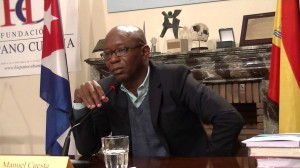 In political terms it has allowed several things. The first is visual contact. Not even the social networks substitute for person to person contact, which is what creates crust between interlocutors to confirm and promote initiatives. Another aspect is the perception of others. To leave andmake contact in all environments allows others to get an idea that democratic change is possible.
In political terms it has allowed several things. The first is visual contact. Not even the social networks substitute for person to person contact, which is what creates crust between interlocutors to confirm and promote initiatives. Another aspect is the perception of others. To leave andmake contact in all environments allows others to get an idea that democratic change is possible.
Prior to January 14 there was a struggle and support that it seemed more heroic and testimonial. We are supporting a community of people who want change for the country, but will they have the capacity and possibilities, really? Because the first freedom of man is not free speech, but of movement; what makes freedom of expression authentic or now, is precisely the possibility of escaping when you express yourself in closed regimes.
For example, in North Korea the fact of freedom of expression is neither effective nor real, regardless of fighting for it, because in the end you can’t escape and you stay in the trap of a brutal regime like this. The ability to flow from one side to another in the porous borders in the world is what gives force to the struggle for democratic change.
The possible impact of freedom of expression and other civil liberties becomes more real; and then the exterior community sees that it is much more viable, that it’s really practicle to work for the democratization of the country. That has had an impact within the country, because these travels have allowed redefine the stage. People begin to be measured with real politics: how to think, what is said, how politics are done, what is language, what are the levels at which the politics are being developed in the world.
Eliecer Ávila (computer engineer, young political leader)
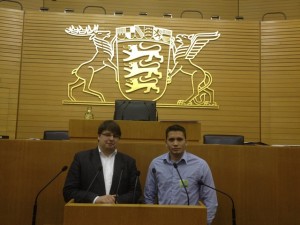 The balance has been positive for activism, despite our inexperience in almost all aspects of diplomacy and ongoing dealings with the media. Then came a crisis from the opinions and attitudes of the different activists; which is normal because each one was consolidating a character and forging an opinion which, fortunately, wasn’t unanimous.
The balance has been positive for activism, despite our inexperience in almost all aspects of diplomacy and ongoing dealings with the media. Then came a crisis from the opinions and attitudes of the different activists; which is normal because each one was consolidating a character and forging an opinion which, fortunately, wasn’t unanimous.
Today, thanks to all those experiences are creating infinitely superior projects and the results will be seen very soon. To have the ability of submitting yourself to the scrutiny of international settings is a great strength and at the same time the greatest professional and moral challenge that anyone can face.
Antonio Rodiles (leader of the Estado de SATS Project)
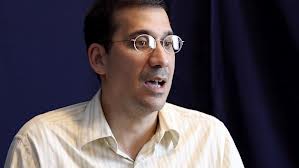 This is a process where you will not see results in the short, but in the medium term, both inside and outside. Inside, I think has been very favorable first that we were able to go to other forums outside the island and have our voices heard. We were able to communicate directly what’s going on here, the dynamics in the country, what are the needs, what are the weak points, what are some strengths. That was necessary. We were able to interact directly with Cubans outside the island we have seen, we have known. I think that part is obviously very positive. It has meant new experiences, we could see other realities such as occurred in Eastern Europe, and well, anyway, this whole part of trade, flow of information and contacts, I think has been very positive.
This is a process where you will not see results in the short, but in the medium term, both inside and outside. Inside, I think has been very favorable first that we were able to go to other forums outside the island and have our voices heard. We were able to communicate directly what’s going on here, the dynamics in the country, what are the needs, what are the weak points, what are some strengths. That was necessary. We were able to interact directly with Cubans outside the island we have seen, we have known. I think that part is obviously very positive. It has meant new experiences, we could see other realities such as occurred in Eastern Europe, and well, anyway, this whole part of trade, flow of information and contacts, I think has been very positive.
The negative part is that one can disassociate from the work being done on the island, if the trips are too long, if we’re not in total contact with the rest of Cuban society, we can weaken that link. Personally, I have tried to travel for short periods, to maintain the rhythm of my work. There has also been a realignment of political activists, thanks to the how they see themselves relative to the exterior and the interior with this new possibility. It seems these are necessary things that have to happen.
With time these rearrangements will settle, and little by little we’ll see what the consequences of these trips are, now in practice. In any event, I do think that the trips are absolutely necessary. We need now that Cubans who do not agree with the system can come out. The government has sent a clear signal: “Outside the island you can meet whomever you desire, you can talk, you can participate in the forums, but here inside we are the ones who still have all the control, all the power,” and whomever crosses the line they have drawn, they simply have to face the consequences.
This is what we’ve been seeing in practice. I think that it will continue to be the logic of the regime and well, we’ll see what the effect is of the support we receive from the international arena to stop this policy of repression and violations. The effectiveness of our work remains to be seen.
Mario Félix LLeonart (Baptist pastor, blogger, community leader)
 Dialog in international forums has made possible a new kind of citizen diplomacy, which represents the people, the civil society that we are rescuing. Until 14 January 2013, diplomacy was only representative of the official voice. In my case, I felt that there would be bridges between Cubans inside and I represented outside; and between churches which, in the past, tried to separate. I felt I occupied spaces that until then were only accessible to the emissaries of the regime.
Dialog in international forums has made possible a new kind of citizen diplomacy, which represents the people, the civil society that we are rescuing. Until 14 January 2013, diplomacy was only representative of the official voice. In my case, I felt that there would be bridges between Cubans inside and I represented outside; and between churches which, in the past, tried to separate. I felt I occupied spaces that until then were only accessible to the emissaries of the regime.
The official diplomacy, which was all that could exist before, is now confronted by another alternative. There are two versions that are now circulating through the world and are beaten, both in political spaces as well as cultural and academic ones. It will no longer be so easy for the official diplomacy because now they have to face a new version that has come out of the island itself. Also, the distances between the internal and external opponents have been shortened and alliances and cooperation between them are favored.
The faces of the internal opposition have also become known with greater impact within the island, thanks to the media in the world that have covered them, which the media within the island have not, and like a boomerang the coverage has spread within Cuba thanks the informal networks where all kinds of content circulates. Moreover, the travels and the returns of the opponents destabilizes and confuses the acolytes of the regime who for decades have been used to repress and now are surprised to see their usual victims traveling and becoming empowered. Obviously, these repressors lower their levels of obedience.
Reinaldo Escobar (blogger and freelance journalist)
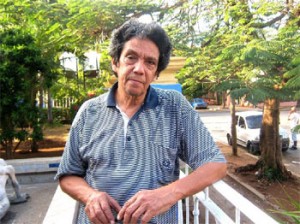 It is perhaps a little premature to evaluate the repercussions of the January 2013 migratory reform, on the atmosphere of Cuban civil society. In fact, Cuba is not longer the island where people can’t leave without permission from the government and that is a transcendental event. It’s no longer necessary to be “well behaved” to get permission to leave.
It is perhaps a little premature to evaluate the repercussions of the January 2013 migratory reform, on the atmosphere of Cuban civil society. In fact, Cuba is not longer the island where people can’t leave without permission from the government and that is a transcendental event. It’s no longer necessary to be “well behaved” to get permission to leave.
Cuba’s dissidents have had the chance to present an image of what’s happening in the country outside the country, which has somehow broken the monopoly the Cuban authorities have to give this sugar-coated and idyllic image of the socialist Revolution “of the humble, by the humble…”
On the other hand, it has changed many people’s opinion of Cuba and this has influenced many people who used to come here only to applaud, and now they’ve come to question, to challenge the Cuban authorities, who have no option other than to give an answer.
One year after migratory reform, the government has lost the monopoly on the dissemination of the reality of Cuba abroad and the opponents and civil society activists have gained in experience and with respect to other scenarios. What
Lilianne Ruiz, Cubanet, 14 January 2014
